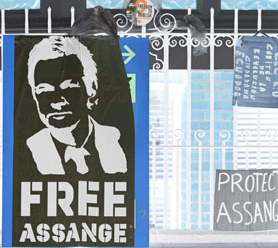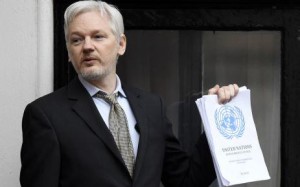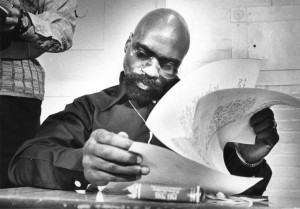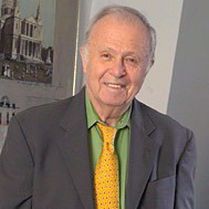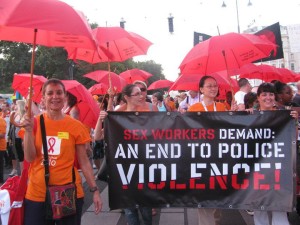Podcast: Play in new window | Download
UN Panel: Julian Assange Has Been “Arbitrarily Detained”
Validating what WikiLeaks founder Julian Assange’s legal team has been long asserting, the United Nations working group on arbitrary detention recently found that Assange has indeed been subject to arbitrary detention. The working group called on Britain and Sweden to end his deprivation of liberty.
As listeners will recall, Assange was arrested in 2010, and has been has been staying in the Ecuadorian embassy in London since 2012, when he sought asylum. Assange is wanted for questioning over an allegation of rape in 2010, which he denies.
Great Britain and Sweden rejected the UN panel’s findings. Prime Minister David Cameron has said that Assange should leave the embassy and submit himself to a Swedish arrest warrant over allegations of rape to bring an end to what he called “this whole sorry saga.” Cameron dismissed as “ridiculous” the findings of a UN panel and said that Assange had in fact detained himself.
Guest – Carey Shenkman is a First Amendment and human rights attorney working for Michael Ratner, President Emeritus of the Center for Constitutional Rights (CCR). Formerly at CCR, Carey worked on litigation on behalf of the press in the court-martial of whistle-blower Chelsea Manning. Carey holds two degrees in mathematics, and is an alumnus of NYU Law School, where he was an editor on the NYU Law Review. He can be reached on Twitter @CareyShenkman
—-
Remembering People’s Lawyer Myron Beldock
Myron Beldock, founding partner of the law firm Beldock Levine and Hoffman, peoples lawyer and longtime National Lawyers Guild member, passed away peacefully on February 1. He was 86 years old. Jim Dwyer of the New York Times wrote that Myron “had an important hand in cases that helped define the landscape of 20th-century law, and in others that merely righted the grievous wrongs done to unknown people.” Members of the National Lawyers Guild knew Myron not only as a brilliant attorney who took on the seemingly intractible cases of the wrongfully convicted, but also as a mentor, advisor and inspiration to a multitude of other people’s lawyerss. His death is a monumental loss to the criminal defense and civil rights bars. In the 1960s, Myron was one of the attorneys for George Whitmore, who dropped out of school in the eighth grade and was picked up by police in Brooklyn in connection with several rapes and three murders. Police interrogated him until he falsely confessed, even though he was in South Jersey at the time of some of the crimes watching Rev. Dr. Martin Luther King, Jr’s “I Have a Dream” speech. The confession was 61 typed pages in length. The US Supreme Court, in the 1966 Miranda decision, called the Whitmore confession the “most recent conspicuous example of police coercion.” And as a result of this coerced confession, New York State abandoned the death penalty in 1965.
More recently, in 2013, Myron appeared in court on behalf of Everton Wagstaffe, who along with Reginald Connor, was convicting soley on the word of a crack-addicted police informant, of kidnapping a teenage girl found dead in 1992 in East New York. Mr. Wagstaffe spent two decades compiling records to show that the informant’s and detectives account were impossible. He wrote to Myron from prison, seeking his help. Myron worked with attorneys from the Innocence Project, the firm Davis Polk & Wardwell and the Legal Aid Society. In September 2014, the of the convictions of Mr. Wagstaffe and Mr. Connor were vacated. Myron was well known for securing the freedom of former boxer Rubin “Hurricane” Carter after he had served 19 years in prison for three murders in New Jersey. He also represented Yusef Salaam, one of five young black and Latino men who falsely confessed on videotape to the 1989 beating and rape of a woman who became known as the Central Park jogger. After serving terms of 7½ years to 13½ years, the five were exonerated in 2002, when an imprisoned man confessed to the crime and prosecutors confirmed his account with DNA evidence. We at Law and Disorder interviewed Myron in 2014, and remember him fondly as we take a listen to parts of that conversation:
In April of this year, celebrated boxer and prisoner-rights activist Rubin “Hurricane” Carter died at the age of 76. He had become an international symbol of racial injustice after his wrongful murder conviction forced him to spend 19 years in prison. Carter was arrested for a triple murder in his hometown of Patterson, New Jersey. He said he was innocent, was convicted by an all white jury, and sentenced to three consecutive life sentences. In 1976, the New Jersey State Supreme Court overturned his conviction on grounds the authorities withheld material evidence from the defense. But Carter was convicted again in a second trial in 1976. In 1985, that conviction was overturned by a U.S. district court judge, who concluded the state made an unconstitutional appeal to racial prejudice. In 1988, the Passaic, New Jersey, Prosecutor’s Office dropped all charges against Carter.
- He was a defendant in a criminal case in New Jersey involved the triple shooting and three murders of 3 people in the Lafayette bar in Patterson, New Jersey.
- He and his co-defendant John Artis were represented at the first trial and they lost, (convicted) and Rubin started his campaign to get out of jail and wrote his book the 16th Round.
- He was charismatic and powerful, a great thinker, very very intellectually strong person as well as being spiritually strong.
- Almost a typical case, high profile case, where you get people who are vulnerable and easily manipulated because of their need for their own benefits to falsely testify.
- We set aside the convictions when we learned about the benefits that were given to the witnesses.
- We went again to trial in 1975. At that time the atmosphere had changed. There was a new prosecutor, they came up with a theory that it was actually a racial revenge killing.
- Earlier that night, a white former bar owner had shot and killed the black purchaser of the bar from him.
- That was always known and there was no motives attributed to the killings in the first trial but the second trial really based on speculation and bias, they argued persuasively to the jury that this was a racial revenge killing.
- Mr. Bellow who was the supposed eye witness who testified, there were two of them in the first trial, was being questioned by me on the stand as to why he recanted his recantation. The prosecutor persuaded him to again tell the story he told at the first trial, identifying Rubin and John and I was trying to establish that they had falsely manipulated him when I was pulled into the chambers along with my co-counsel Louis Steele who represented John Artis and told that if I question him further, the jury would learn that he passed the lie detector test, supporting what he said at the first trial. Supporting his identification (of Rubin Carter)
- We did have that test. It seemed like that was the result because that’s the way it was written. In fact that was a fraud.
- The polygraph results were completely opposite of what they were purported to be.
- The prosecutors in that case, two of them became judges, rewarded for what they did.
- Rubin was not a popular person, he had been an outspoken civil rights person. It was a cesspool of rumors without any evidentiary basis.
- The entire community there almost in Passaic New Jersey treated us like we were the devil.
- It was the coldest community reception I ever encountered in any place.
- Rubin would call every year (from Canada) on the anniversary of his release. He got a group of Canadian do-gooders and free thinkers to join him in fighting to set aside convictions for people who were wrongly convicted in Canada.
- He would vet the briefs that we sent. He was a very unusual client.
- Rubin refused to act as a prisoner because he wasn’t anyone who was guilty he said.
- So, he didn’t eat prison food, he didn’t take prisoner assignments, he didn’t wear prison clothes and somehow or other he was able to pull that off.
- People think of it as being another time, I’ve been practicing law long enough and I don’t think anything changes.
- The same kind of bias runs deep throughout the community its just masked somewhat differently.
- You make your luck in these cases, you have to forge ahead.
- His insistence on being an innocent person and will not compromise with the system is the kind of inspiration that pushes us on as lawyers.
Guest – Attorney Myron Beldock, graduated from Erasmus Hall High School in 1946, Hamilton College in 1950 and Harvard Law School in 1958. He served in the U.S. Army from 1951 to 1954 and as an Assistant U.S. Attorney in the Eastern District of New York from 1958 to 1960. After several years as an associate with a small New York City firm and as a single practitioner, he brought together two friends and former Assistant U.S. Attorneys, Elliot Hoffman and Larry Levine, to form Beldock Levine & Hoffman in 1964. He is best described, by his own definition, as an old-time general practitioner. He concentrates on trial and appellate litigation, in state and federal courts, in defense of criminal charges and in pursuing plaintiffs’ civil rights actions based on police and prosecutorial misconduct and employer and governmental discrimination. He regularly consults and defends charges of professional discipline. He represents plaintiffs and defendants in a wide variety of personal and business related matters, working with others in the firm’s various practice areas.
—-
Sex Workers Project And Human Trafficking
Sienna Baskin is the Managing Director of the Sex Workers Project at the Urban Justice Center in New York City, where she has worked since 2007. At the Sex Workers Project she both directs a team that provides legal services to sex workers and is responsible for the Project’s policy and law reform work. Sienna also just returned from a Fullbright Fellowship in New Zealand – a country that completely decriminalized sex work/prostitution in 2003 and she went to learn what effects – positive and negative – decriminalization has had, both for people engaged in sex work and for the larger society.
Guest – Sienna Baskin -Managing Director of the Sex Workers Project. Ms. Baskin directs the legal services and policy advocacy of SWP. Ms. Baskin trains and supervises legal staff in providing direct legal representation, public education and outreach. She promotes reform of laws and policies affecting sex workers and survivors of trafficking, and oversees the production of SWP’s human rights documentation reports. Ms. Baskin also provides direct legal education, advice and representation to sex workers and survivors of trafficking on housing, criminal, employment, and immigration matters. Ms. Baskin joined SWP as an Equal Justice Works fellow in 2007. Sienna is a graduate of Hampshire College and the City University of New York School of Law.
———————————————————-
